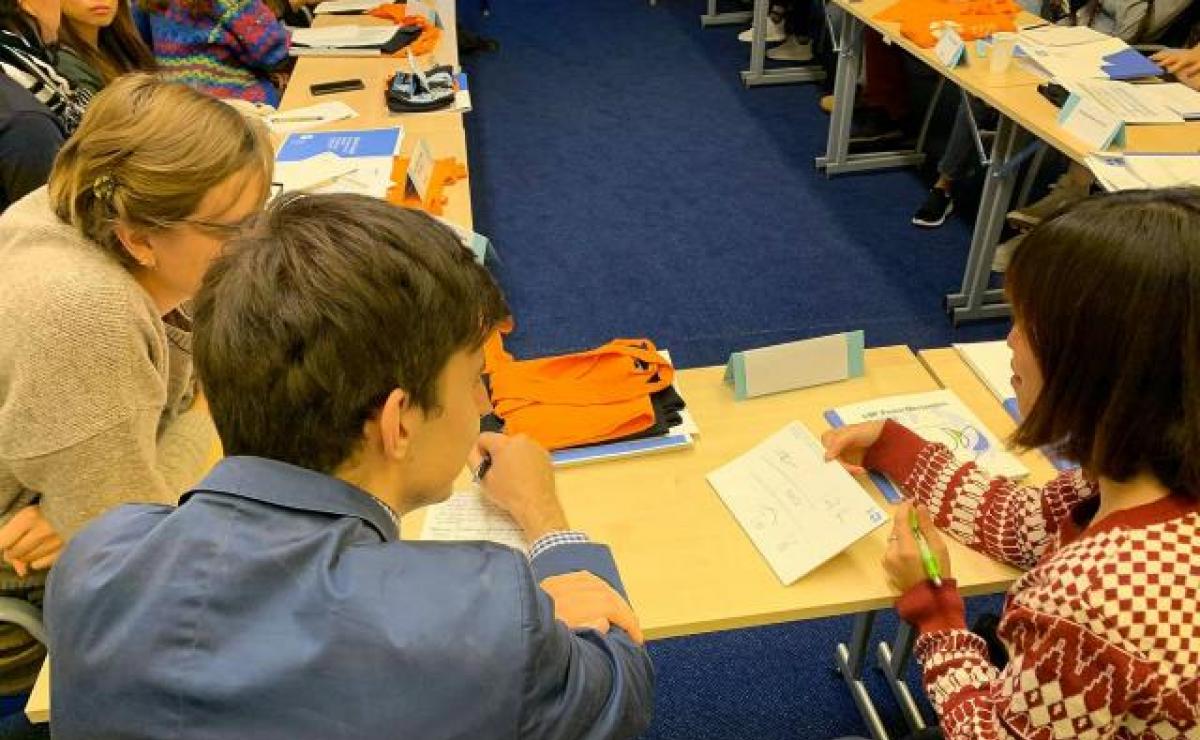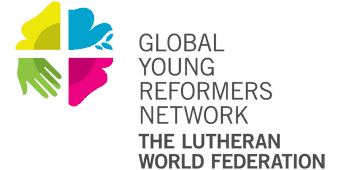Empowering youth to work for peace

LWF “Peace Messengers” share their motivation and challenges
(LWI) - For Juan Carlos Orantes Rodríguez, being a “peace messenger in El Salvador is not only about transmitting the message, but also helping people to find peace in themselves and provide a different view of having hope for the future.”
Through its Peace Messengers program, the Lutheran World Federation (LWF) has been encouraging young people like Orantes to take up a more active role in initiatives that help to build peace in their churches and society.
Juan Carlos Orantes Rodríguez talks about the church’s role in peace building in El Salvador.
The youth leader from the Salvadoran Lutheran Church was among 20 young people who recently took part in the 2019 international training workshop modeled on the Peace Messengers Training Manual. The training resource equips participants from LWF member churches and other faith communities with knowledge and practical skills for constructive conflict resolution and peace advocacy within their communities and beyond. The Estonian Evangelical Lutheran Church (EELK) hosted the 4-9 November event.
Participants discussed how they understand conflict, how it can escalate or de-escalate and the negative and positive experiences that result from it.
Some of the delegates at the 2019 LWF Peace Messengers training in Tallinn, Estonia.
LWF program executive for Youth and training co-facilitator Ms Pranita Biswasi said the modules based on the manual offer participants space to learn from each other’s experiences and foster mutual respect and understanding about peace in the different cultures and contexts. The youth are equipped to reflect together on a vision for peace and see themselves as active contributors and powerful multipliers towards this goal.
Discourse on conflict, she said, often portrays young people as perpetrators of violence who are also easily attracted to extremism. Through the Peace Messengers approach, the LWF promotes the role of youth as people who prevent rather than instigate violence, Biswasi added.
LWF program executive for Youth and training co-facilitator Ms Pranita Biswasi.
A vision for peace
The LWF Strategy 2019-2024 and its vision statement emphasis on ‘working together for a just peaceful and reconciled world’ was one of the resources. Co-facilitator Rev. Dr Sivin Kit, LWF program executive for Public Theology and Interreligious Relations, explained the importance of clarifying the connection between one's vision of peace and understanding conflict, particularly when considering different world contexts.
“Some of the participants shared how they face fairly strong ethnic and religious challenges in places such as Indonesia and Malaysia, while others talked of the struggle with intergenerational issues and confrontational political environments in countries like Estonia and Poland. The degree of violence was also highlighted by those coming from Honduras and most recently Hong Kong.”
EELK theologian Rev. Anne Burghardt invited participants to reflect on the Christian and Lutheran faith traditions that help to promote peace and motivate peacebuilding efforts.
Rev. Dr Sivin Kit, LWF program executive for Public Theology and Interreligious Relations, facilitating a session of the training. Photo: LWF/P. Biswasi
Concern for creation, intergenerational relations
The youth expressed appreciation for the mutual sharing from their respective contexts. In her presentation, Berglind Hönnudóttir from The Evangelical Lutheran Church of Iceland, cited the “death of glaciers” in her country as a wake-up call and timely reminder that “peace on earth” is also about “peace with the earth.”
Ms Kar Yee Mah, Lutheran Church in Malaysia, said hearing how youth are providing non-violent alternatives to conflict in otherwise difficult and volatile situations was a source of encouragement “to do the right thing.”
Biswasi noted that many of the delegates were concerned about the intergenerational conflict in the church. “Churches need peace between the different age groups. This was evident when many of the youth expressed frustration that young people’s contribution to decision-making in the church was not welcomed or acknowledged.”
She said some of the follow-up projects the youth proposed to work on in their churches, will include capacity building.
Ms Berglind Hönnudóttir (second right) made a presentation on the death of glaciers in Iceland.
The Peace Messengers Training Manual was launched in 2017, during a workshop in Jerusalem attended by Christian and Muslim youth. The trainees use the skills gained to design or support projects that help to resolve conflict in the church or society, with support from the LWF.
The Peace Messengers Training is a peacebuilding and conflict resolution program designed for youth from different communities and faith traditions. It is based on a module that was launched in 2017 during a workshop in Jerusalem.
